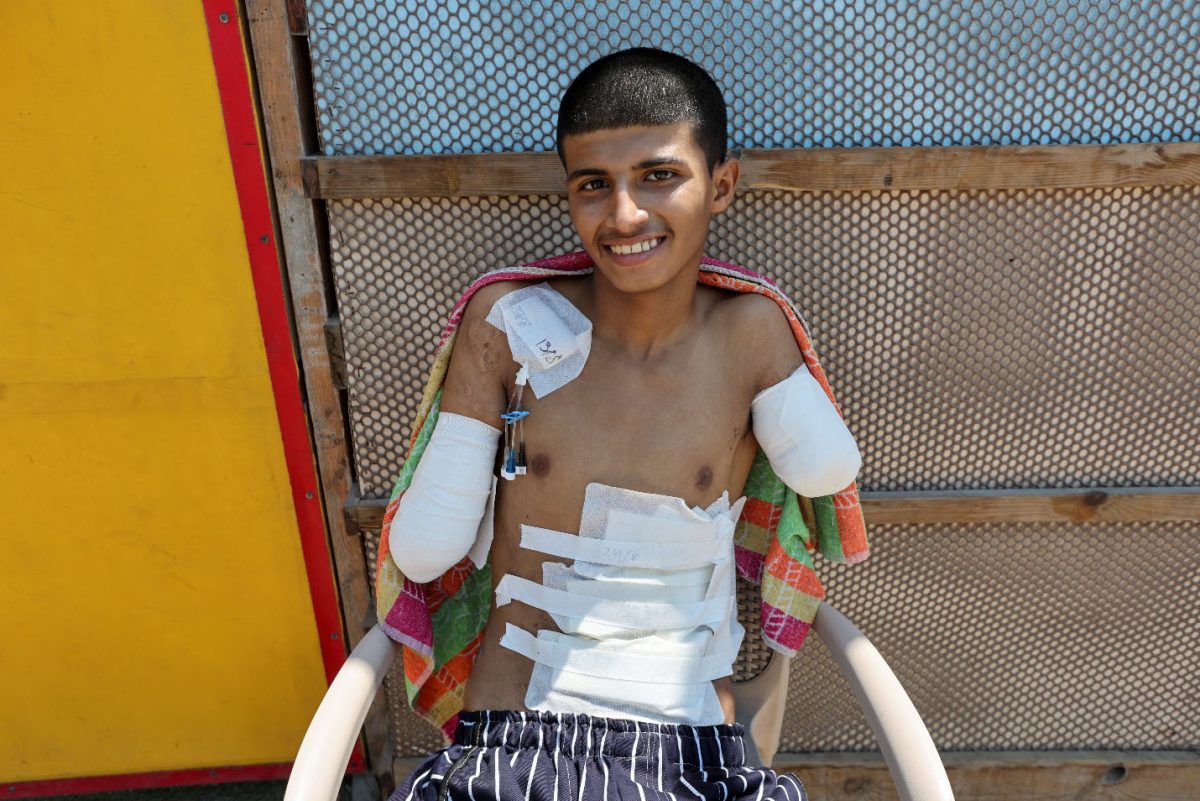GAZA, (Reuters) – Teenager Diaa al-Adini was one of the few Palestinians who found a functioning hospital in war-ravaged Gaza after he was wounded by an Israeli strike. But he did not have much time to recuperate after doctors amputated both of his arms.
Adini, 15, suddenly had to flee the overwhelmed medical facility after the Israeli military ordered people to leave before an attack in its war against the Palestinian militant group Hamas. He made it to an American field hospital.
Many Palestinians have been displaced during the conflict, moving up and down and across the Gaza Strip seeking safe shelter. They are unlucky most of the time.
Scrambling to save your life is especially difficult for Palestinians like Adini, who require urgent medical care but get caught up in the chaos of the war, which erupted after Hamas militants attacked Israel on Oct. 7, killing 1,200 people, by Israeli tallies.
Memories of better days provide limited relief from reality in Gaza. Israeli strikes have reduced most of one of the most crowded places on earth to rubble as rows and rows of homes are destroyed.
“We used to swim, challenge each other, and sleep, me and my friend Mohammed al-Serei. We used to jump in the water and float on it,” said Adini, who walked on a beach with his sister Aya recalling the few distractions from before.
His sister placed a towel over the place where his arms used to be and wiped his mouth.
The strike hit when he was in a makeshift coffee house.
The teenager, who spent 12 days in hospital before he was displaced also lost his aunt, her children and grandchildren in the war.
“As for my arms, I can get other ones fitted but I cannot replace my aunt,” he said.
Israel responded to the Hamas attack in October — the country’s bloodiest day in its 75-year history — with a military offensive that has killed at least 40,500 people and wounded 93,778 others, according to Gaza health authorities.
Israel says it goes out of its way to avoid civilian casualties and has accused Hamas of using human shields, an allegation it denies.
The suffering is unlikely to end anytime soon unless mediation by the United States, Egypt and Qatar secures a ceasefire. And even then, there is a possibility hostilities will resume.
So all Palestinians can do is hope for treatment at the few functional hospitals as they face a humanitarian crisis — severe shortages of food, fuel, power and medicine, as raw sewage increases the chance of disease.
“God willing, I will continue my treatment in the American hospital, and get limbs,” said Adini.
He dreams of being like other children one day; to live a good life, get an education, drive cars and have fun. His sister Aya hopes that he can go back to his camera and iPad.

